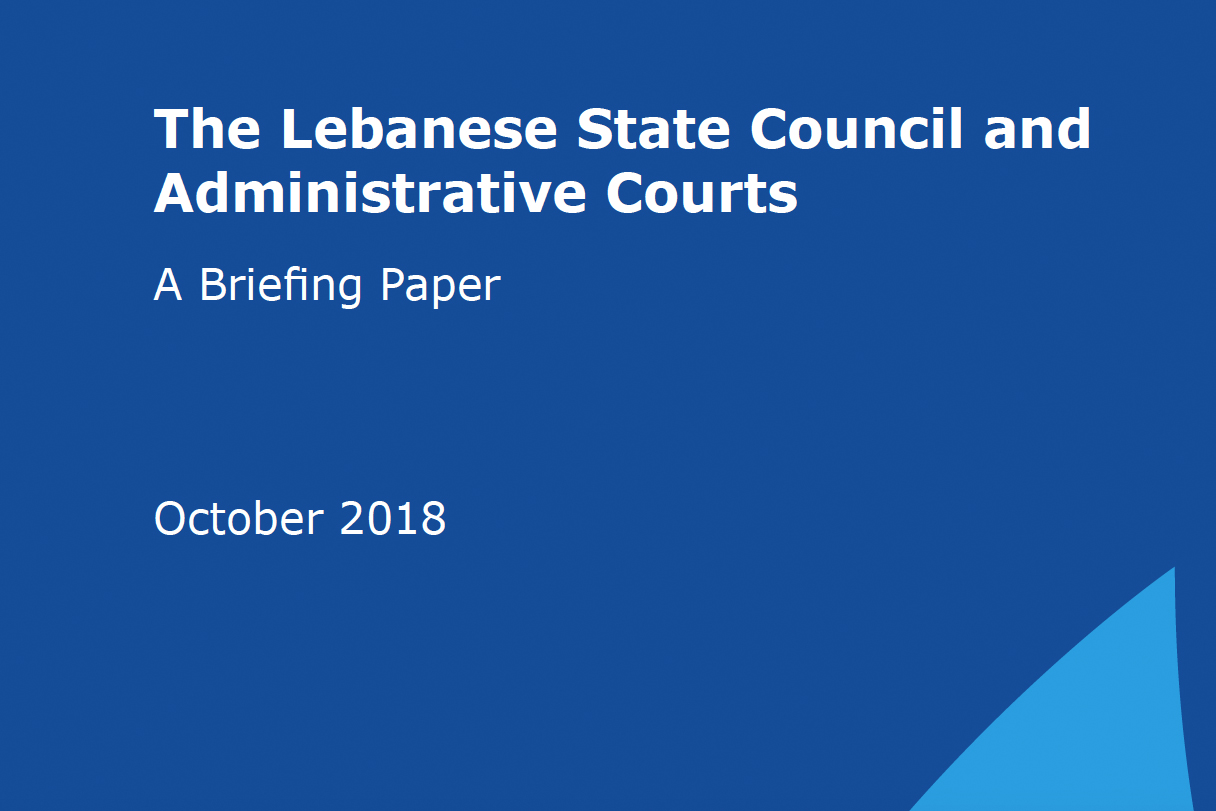In a memorandum published today, the ICJ called on the Lebanese authorities to introduce comprehensive reforms to enhance the independence and impartiality of the administrative courts system, in particular by divesting the executive of any role in the selection, appointment and disciplining of administrative judges.
“The Lebanese authorities must set out transparent procedures for the selection and appointment of administrative judges, including in senior judicial positions,” said Said Benarbia, ICJ MENA Director.
“While such appointments should in principle seek to reflect the diversity of the Lebanese society as a whole, including its various religious groups, they must be based on objective criteria, including legal qualifications, skills, experience and integrity,” he added.
The power to take decisions relating to the management of judges’ careers, including promotions, transfers, and disciplinary proceedings, should be exclusively reserved to the State Council Bureau once the framework governing its composition and mandate is reformed.
The Lebanese authorities should ensure that the State Council Bureau is independent and consists of a majority of judges who are elected by their peers from the State Council and, once they are established, from first instance administrative courts.
The membership of the State Council Bureau should also reflect a gender balance.
The Lebanese authorities should also amend the Statute of the State Council with a view to enhancing the individual independence of administrative judges.
“The conditions for the transfer, assignment or secondment of administrative judges should be clearly defined in the law and the entire process must not compromise judges’ individual independence, including through the use of secondment as a reward for judges,” Benarbia said.
The ICJ is also concerned that the disciplinary system does not fully conform to international standards and has the potential to compromise judges’ individual independence.
The Lebanese authorities must rescind the powers of the Ministry of Justice in relation to the disciplinary procedure, including the authority to initiate disciplinary investigations and to refer matters to the Disciplinary Council.
“Disciplinary offences must be clearly and precisely defined within the law and related procedures must guarantee judges’ rights to a fair hearing before an independent and impartial body, including the right to have decisions and sanctions reviewed by a higher judicial body,” Benarbia added.
Contact:
Said Benarbia, Director of ICJ’s Middle East and North Africa Programme, t: +41-22-979-3817; e: said.benarbia(a)icj.org
Lebanon-Memo re Court Reform-Advocacy-Analysis Brief-2018-ENG (Memo in English, PDF)
Lebanon-Memo Courts System launch-New-2018-ARA (Story in Arabic, PDF)
Lebanon-Memo Court Reform-Advocacy-Analysis Brief-2018-ARA (Memo in Arabic, PDF)

